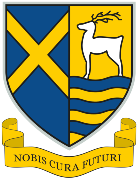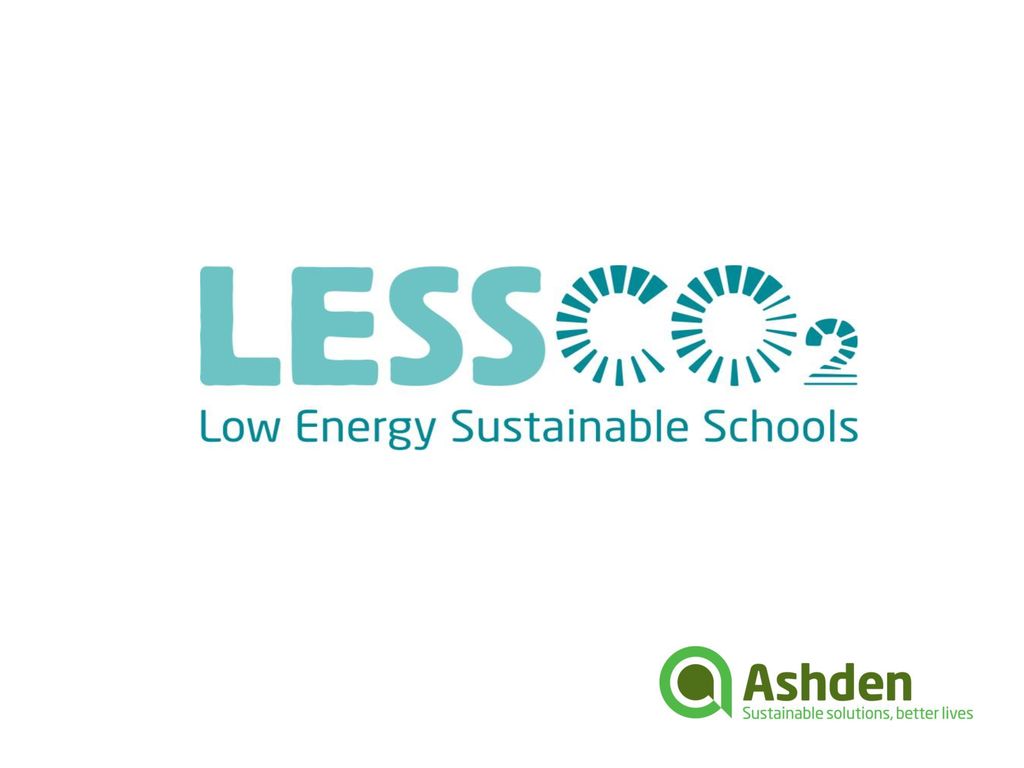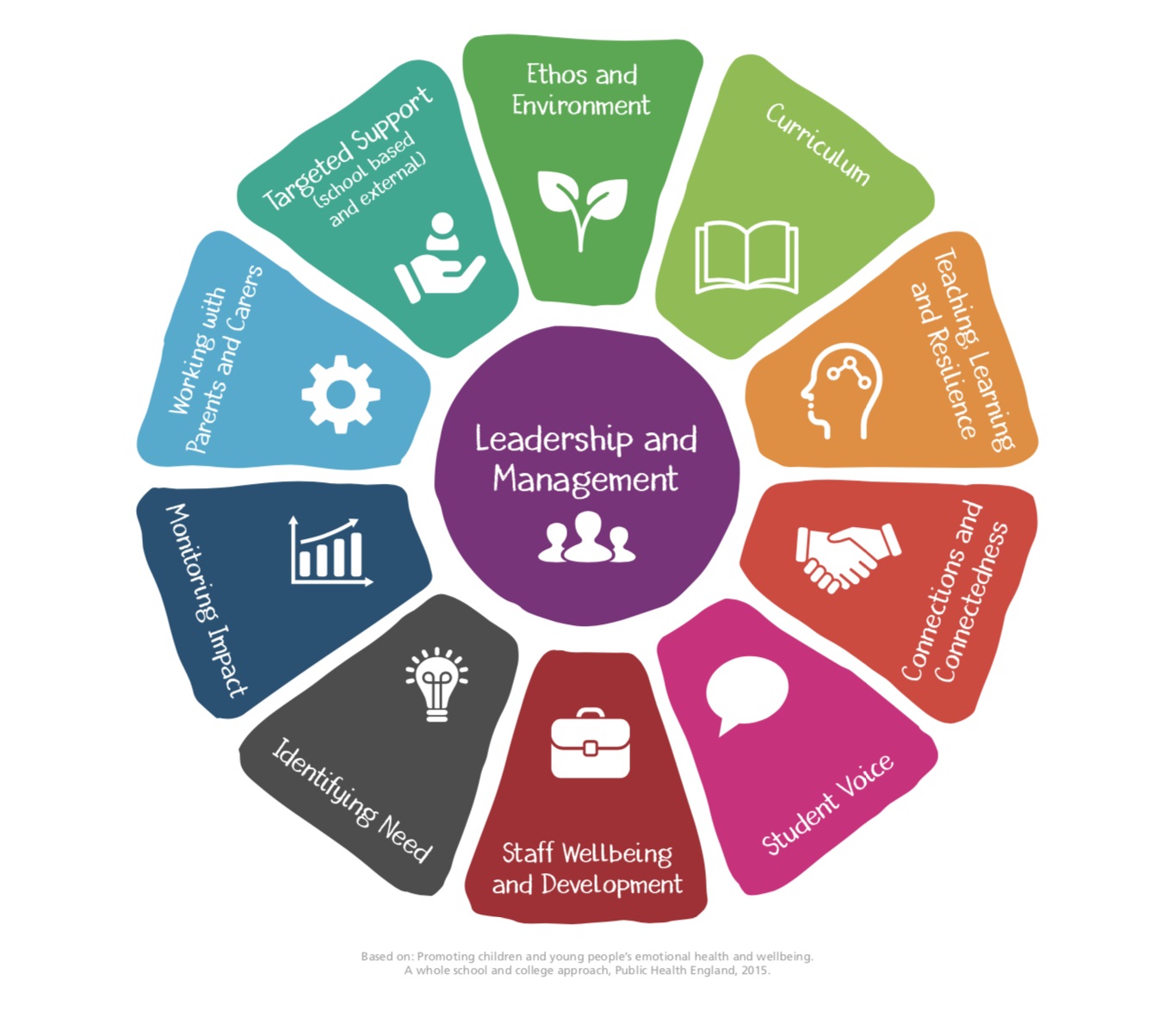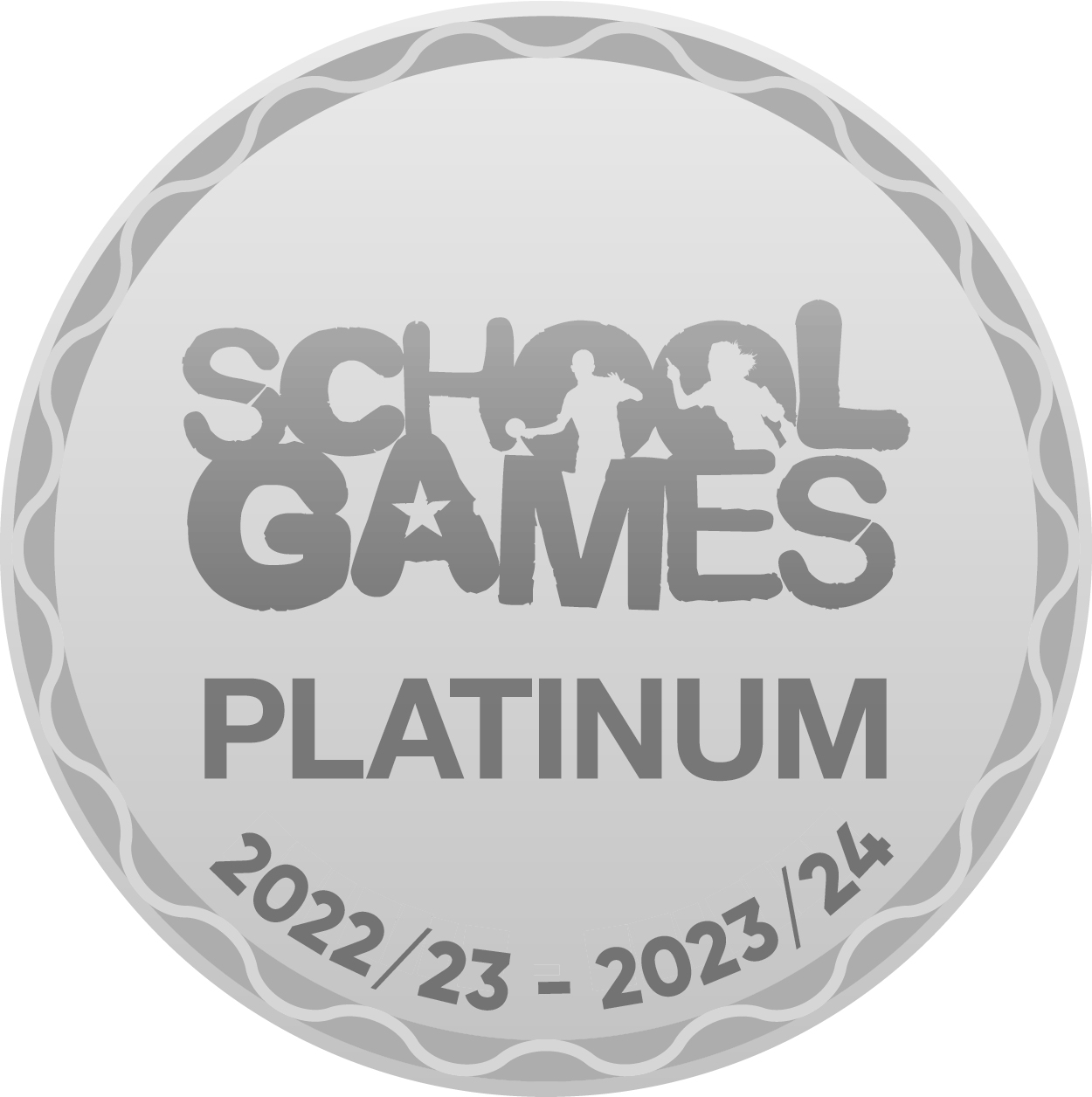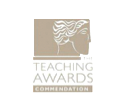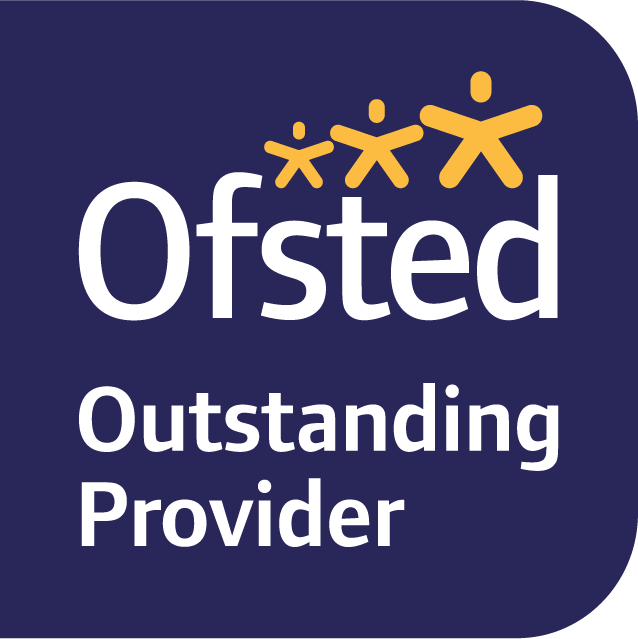Teaching & Learning
The learning experience of our students, in and out of the classroom, is at the heart of what we do at STAGS
Our Teach and Learn standards provide a framework for all in the STAGS community so that we work together in our goal to ensure that students enjoy, and are able to take charge of their learning. Our STAGS values of Success and Ambition provide further support for this so that students are empowered to achieve their potential.
More details about the learning experience at STAGS can be found by exploring the links within this section.
The delivery of our broad and balanced curriculum is focused on the principle of consistent Quality First Teaching, based upon the STAGS standards of TEACH and LEARN and the STAGS values. All students are supported to adhere to our key Presentation Fundamentals, which ensure high standards and positive approaches to learning for all, whilst being provided with timely and meaningful feedback to support progress.
The exceptional quality of Teaching and Learning is underpinned by pedagogical research and an ethos of Continuous Professional Development for all colleagues, as epitomised by the view of Dylan Wiliam that “every teacher needs to improve, not because they are not good enough, but because they can be even better.” As a result, students enjoy exceptional learning environments across the school that enable them to thrive.
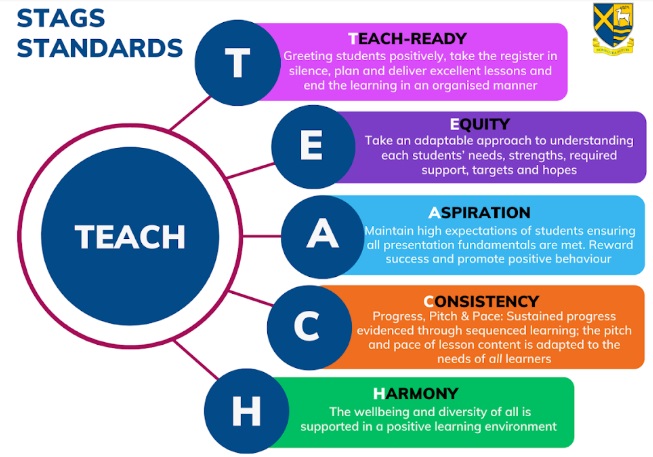
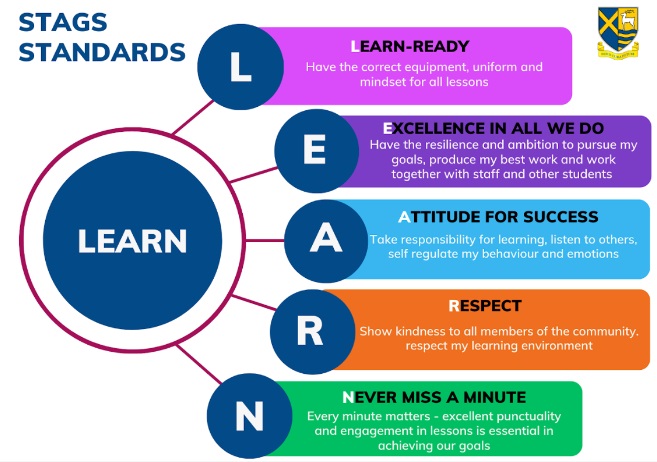
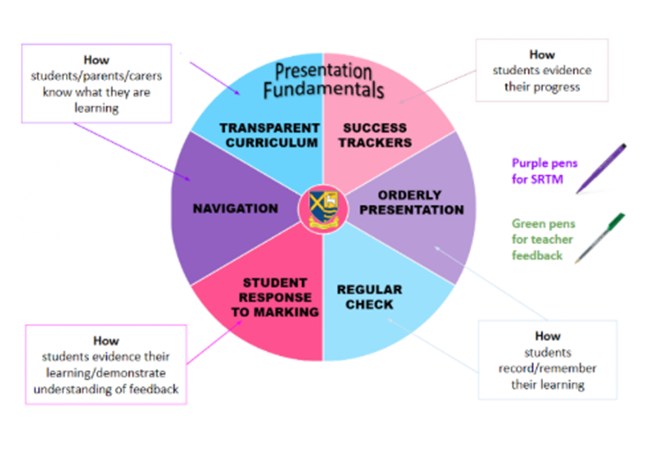
Blended Learning
Blended Learning is our exciting programme where students use their own devices in lessons for all subjects; all students use devices in lessons to access Google Classroom and other named online resources as directed by classroom teachers, undertake live research and collaborate with peers as well as generate learning resources and retrieval materials. Devices are often used to support students' progression and deepen thinking when completing home learning, as per the schedules outlined in the Home Learning section of the website.
All students have a device either purchased as part of our device scheme partnership with Freedom Tech or brought in as part of our Bring Your Own Device programme.
The learning possibilities for Blended Learning are infinite! This continues to be a very exciting opportunity to prepare students for vocations where they will integrate online systems, encourage independent learning and responsibility - both in terms of learning and device upkeep - and offer adapted and deep learning experiences across all areas. We encourage all students to take full responsibility for their device by reiterating the following key points:
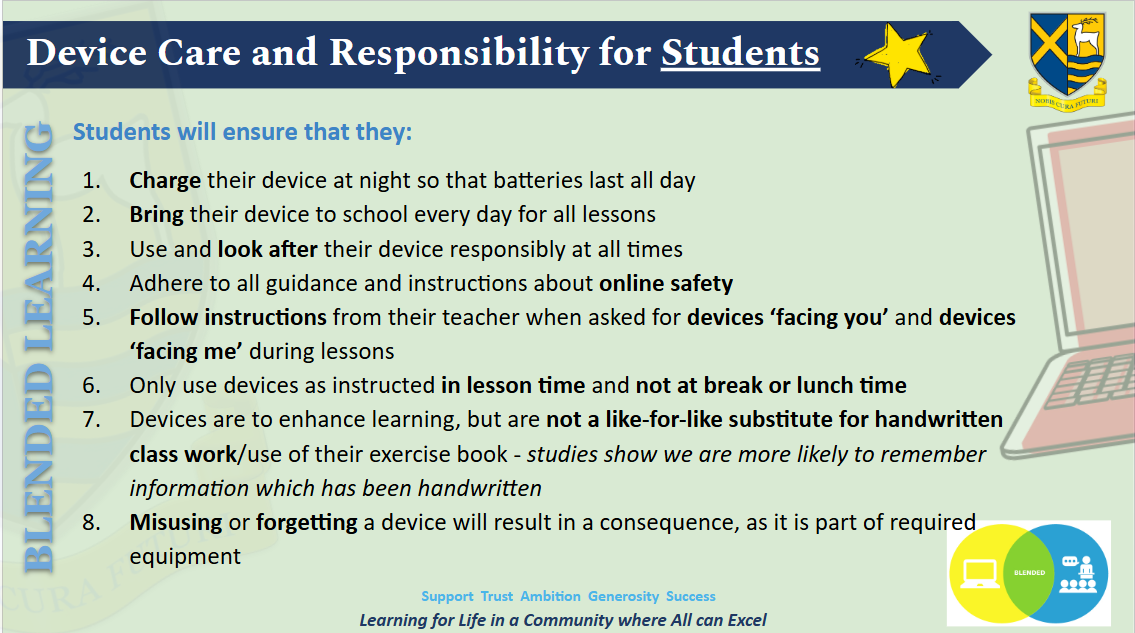
Ensuring your child has the right device for school
-
Our preferred option - Albion Device Scheme
Home Learning
Research over several years in this country and abroad has shown that there is a positive relationship between time spent on home learning and students’ overall achievement at secondary school level.
Home Learning is set because it not only reinforces classroom learning, but also helps young people to develop skills and attitudes they need for successful lifelong learning. It supports the development of independent learning skills, including the habits of enquiry and investigation.
At St Albans Girls’ School, Home Learning is an integral part of the curriculum; it is planned and prepared alongside all other programmes of learning. Home Learning tasks are selected ensuring they are appropriate to the age, ability and circumstances of the students. Teachers also make sure that they reflect the research findings that suggest tasks linked to the work completed in school are more effective and where there is feedback linked to home learning, the impact on progress is greater. There is also evidence to suggest that the longer a student spends on a piece of home learning, that it has less impact on their learning. We have tailored our home learning guidance to take this into account.
Each subject has a programme of Home Learning tasks linked to the programme of study. Home Learning can be completed at home but can also be completed at school. The Library Resource Centre (LRC), for example, is open each morning at 8.15am and closes at 4.30pm as well as being open to students at break and lunch time. In addition, many departments will organise after school and lunch time study sessions to help students with their studies.
Home Learning for Years 7-9 will be set as per the chart below and outlined in our Home Learning Policy with each task lasting 20 minutes for Year 7, 30 minutes for Year 8 and 40 minutes for Year 9. In years 10 and 11, each home learning activity should last 60 minutes and in Sixth Form, students are expected to study one hour independently per hour of the subject taught. Tasks will be set on Edulink and any necessary materials will be uploaded to Google Classroom with teachers identifying on Edulink if this is the case. Teachers often signpost students to optional Take It Further (TIF) tasks, which are designed to deepen thinking and challenge them further.
